Functional Foods for Cognitive Performance: Brain-Boosting Nutrition
Functional Foods for Cognitive Performance: Brain-Boosting Nutrition
Have you ever wondered if the foods you eat can enhance your brain function and cognitive performance? The answer is a resounding yes! In todays fast-paced world, maintaining peak mental performance is more important than ever, and what you eat plays a crucial role. This is where functional foods come into play.
Functional foods are not just about basic nutrition; they offer additional health benefits that can significantly impact your well-being. When it comes to cognitive performance, certain functional foods stand out for their brain-boosting properties. Incorporating these foods into your diet can help improve memory, focus, and overall brain health.
In this article, we'll explore the concept of functional foods and how they can enhance cognitive performance. We'll delve into the specific nutrients that support brain health, highlight the top brain-boosting foods, and provide practical tips on how to incorporate these foods into your daily diet. By the end, you'll have a clear understanding of how to fuel your brain for optimal performance. Ready to unlock the potential of your diet for better brain health? Lets dive into the world of functional foods for cognitive performance!
Section 1: Understanding Functional Foods
Definition: Functional foods provide health benefits beyond basic nutrition. Unlike regular foods that simply supply essential nutrients like vitamins, minerals, and proteins, functional foods contain bioactive compounds that can positively affect various aspects of health, including cognitive performance. These foods are often rich in antioxidants, healthy fats, vitamins, and minerals that support brain function and overall well-being.
Benefits of Functional Foods:
Enhanced Brain Function: Omega-3 fatty acids found in fatty fish are crucial for brain health and have been shown to improve cognitive performance.
Neuroprotection: Antioxidants in functional foods protect the brain from oxidative stress, which can damage brain cells and lead to cognitive decline. Foods rich in antioxidants, such as blueberries and dark chocolate, can help protect brain cells and improve overall brain health.
Improved Mood: Certain functional foods can help regulate mood and reduce symptoms of depression and anxiety. For example, foods high in B vitamins and magnesium, such as leafy greens and nuts, support neurotransmitter function and can improve mental health.
Examples of Functional Foods:
- Fatty Fish: Rich in omega-3 fatty acids, essential for brain health.
- Berries: High in antioxidants that protect the brain from oxidative stress.
- Nuts and Seeds: Packed with healthy fats, antioxidants, and vitamins that support brain function.
- Leafy Greens: Provide essential nutrients like vitamin K, folate, and beta carotene that support cognitive health.
- Whole Grains: A good source of complex carbohydrates and fiber, providing steady energy for the brain.
To be clear, there is no question that incorporating functional foods into your diet can significantly enhance your cognitive performance and overall brain health. After all, we are what we eat, right?
Section 2: Nutrients Essential for Cognitive Performance
When it comes to brain health, certain nutrients in functional foods are particularly beneficial. These nutrients help to support brain function, protect against cognitive decline, and enhance overall mental performance.
Omega-3 Fatty Acids
- Importance: Omega-3 fatty acids are crucial for maintaining brain health. They are key components of cell membranes in the brain and have anti-inflammatory properties that protect brain cells from damage.
- Sources: Fatty fish such as salmon, mackerel, and sardines. Plant-based options include flaxseeds, chia seeds, and walnuts.
- Benefits: Improve cognitive function, enhance memory, and reduce the risk of Alzheimer's disease.
Antioxidants
- Importance: Antioxidants protect the brain from oxidative stress, which can damage brain cells and contribute to cognitive decline. They neutralize free radicals, thereby preventing cell damage and supporting overall brain health.
- Sources: Foods rich in antioxidants include berries (such as blueberries, strawberries, and blackberries), dark chocolate, and leafy greens like spinach and kale.
- Benefits: Improve memory and cognitive function.
B Vitamins
- Importance: B vitamins, including B6, B12, and folate, are essential for brain health. They play a crucial role in energy production, the formation of neurotransmitters, and the maintenance of brain structures.
- Sources: Whole grains, leafy green vegetables, legumes, nuts, seeds, and animal products like meat, eggs, and dairy.
- Benefits: Support cognitive function and can help prevent cognitive decline.
Vitamin D
- Importance: Vitamin D is vital for brain health and cognitive function. It supports the growth and maintenance of neurons and plays a role in mood regulation.
- Sources: Sunlight, fortified foods (such as milk and cereals), fatty fish, and egg yolks.
- Benefits: Linked to better cognitive performance and a lower risk of cognitive impairment and Alzheimer's disease.
Polyphenols
- Importance: Polyphenols are a group of naturally occurring compounds found in plants. They have antioxidant and anti-inflammatory properties that protect the brain and enhance cognitive function.
- Sources: Foods rich in polyphenols include tea (especially green tea), apples, onions, and red wine.
- Benefits: Improve brain function and protect against neurodegenerative diseases.
Section 3: Top Brain-Boosting Foods
Incorporating brain-boosting functional foods into your diet can significantly enhance cognitive performance. These foods are rich in essential nutrients that support brain health, improve memory, and protect against cognitive decline. Here are some of the top functional foods for brain health:
Fatty Fish: Rich in omega-3 fatty acids, which are crucial for brain function and development.
Blueberries: Packed with antioxidants that protect the brain from oxidative stress and reduce inflammation.
Turmeric: Contains curcumin, a potent antioxidant and anti-inflammatory compound that crosses the blood-brain barrier.
Broccoli: Rich in antioxidants and vitamin K, essential for forming sphingolipids, a type of fat densely packed into brain cells.
Pumpkin Seeds: A rich source of magnesium, iron, zinc, and copper, all of which are essential for brain health.
Dark Chocolate: Contains flavonoids, caffeine, and antioxidants that can enhance brain function.
Nuts: An excellent source of healthy fats, antioxidants, and vitamin E, which protect cells from oxidative stress.
Oranges: Packed with vitamin C, which is key to preventing mental decline.
Eggs: An excellent source of several B vitamins, which are involved in brain health and function.
Green Tea: Contains caffeine and L-theanine, which can enhance brain function.
Section 4: How to Incorporate Brain-Boosting Foods into Your Diet
Integrating brain-boosting functional foods into your daily meals doesn't have to be a chore. With a little planning and creativity, you can easily make these nutrient-rich foods a regular part of your cognitive performance diet. Here are some practical meal ideas and tips to help you get started:
Breakfast
Smoothie with Berries and Flaxseeds: Blend together a handful of blueberries, a banana, a tablespoon of flaxseeds, and a cup of almond milk. This delicious smoothie is packed with antioxidants and omega-3 fatty acids to kickstart your brain in the morning.
Avocado Toast with Whole-Grain Bread: Spread mashed avocado on a slice of whole-grain bread and sprinkle with pumpkin seeds. Add a dash of turmeric for an extra brain-boosting kick.
Omelet with Spinach and Broccoli: Whisk together eggs and pour into a hot pan. Add fresh spinach and broccoli florets. Cook until the eggs are set and enjoy a protein-rich, vitamin-packed breakfast.
Lunch
Salmon Salad with Leafy Greens: Mix together fresh greens like spinach and kale with grilled salmon, cherry tomatoes, and a sprinkle of nuts. Drizzle with olive oil and lemon juice for a tasty, omega-3-rich meal.
Broccoli and Quinoa Bowl: Cook quinoa according to package instructions and toss with steamed broccoli, diced bell peppers, and a handful of almonds. Season with turmeric and a squeeze of lime juice.
Turkey and Avocado Wrap: Fill a whole-grain wrap with slices of turkey breast, avocado, spinach, and a handful of pumpkin seeds. This wrap is easy to prepare and great for brain health.
Snacks
Pumpkin Seeds: Keep a small container of roasted pumpkin seeds for a quick, magnesium-rich snack.
Dark Chocolate: Enjoy a square of dark chocolate (70% cocoa or higher) for a midday brain boost. Pair it with a handful of nuts for extra nutrition.
Mixed Nuts: Create a mix of walnuts, almonds, and cashews for a convenient, brain-boosting snack.
Dinner
Grilled Fish with Turmeric-Spiced Vegetables: Season a fillet of fatty fish like salmon or mackerel with herbs and grill until cooked. Serve with a side of turmeric-spiced roasted vegetables like carrots, sweet potatoes, and bell peppers.
Stir-Fry with Broccoli and Lean Protein: Stir-fry broccoli, bell peppers, and onions with lean protein such as chicken or tofu. Add a splash of soy sauce and a sprinkle of sesame seeds for a tasty, nutrient-rich dinner.
Green Tea-Infused Brown Rice: Cook brown rice with green tea instead of water for added flavor and brain-boosting benefits. Serve as a side dish with your favorite protein and vegetables.
Tips for Planning and Preparing Functional Food Meals
Batch Cooking: Prepare large batches of brain-boosting foods like quinoa, roasted vegetables, and grilled salmon. Store them in the fridge for easy access throughout the week.
Meal Prep: Spend a few hours each weekend planning and prepping your meals for the week. Chop vegetables, cook proteins, and portion out snacks to save time on busy days.
Use Fresh Ingredients: Whenever possible, use fresh, high-quality ingredients to maximize the nutritional benefits of your meals.
Experiment with Recipes: Don't be afraid to try new recipes and combinations of brain-boosting foods. Experimenting with different flavors and ingredients can keep your meals interesting and enjoyable.
Stay Hydrated: Drinking plenty of water is essential for brain health. Make sure to stay hydrated throughout the day to support cognitive function.
By incorporating these practical tips and meal ideas into your routine, you can easily include brain-boosting functional foods in your diet. These changes can support cognitive performance and overall brain health, helping you stay sharp and focused.
Section 5: The Science Behind Functional Foods and Cognitive Performance
Understanding the science behind functional foods and their impact on cognitive performance can help you make informed dietary choices. Numerous studies and expert opinions support the role of specific nutrients in enhancing brain function and protecting against cognitive decline. Let's take a short dive into some of the key research findings and insights from experts in the field.
Research on Omega-3 Fatty Acids: Omega-3 fatty acids, particularly DHA (docosahexaenoic acid), are essential for brain health. Studies have shown that DHA is a major structural component of the brain and is critical for cognitive function. Research indicates that omega-3 supplementation can improve cognitive performance in both healthy individuals and those with cognitive impairments. Higher intake of omega-3s is associated with increased gray matter volume in the brain, which is linked to better cognitive function.
Antioxidants and Brain Health: Antioxidants protect the brain from oxidative stress, which can damage brain cells and lead to cognitive decline. Research highlights that antioxidants in blueberries can improve memory and cognitive function in older adults. Dietary intake of antioxidants, such as flavonoids, is associated with a reduced risk of developing Alzheimer's disease.
B Vitamins and Cognitive Function: B vitamins, including B6, B12, and folate, play a crucial role in maintaining brain health. These vitamins are involved in the production of neurotransmitters and the maintenance of brain structures. Studies show that B-vitamin supplementation can slow brain atrophy in elderly individuals with mild cognitive impairment. Higher levels of B vitamins are linked to better cognitive performance in older adults.
Vitamin D and Brain Health: Vitamin D is essential for brain function, and deficiencies have been linked to cognitive decline and mood disorders. Research indicates that higher levels of vitamin D are associated with better cognitive performance and a lower risk of cognitive impairment. Vitamin D supplementation can improve mood and cognitive function in older adults.
Polyphenols and Cognitive Performance: Polyphenols, found in foods like green tea, apples, and red wine, have antioxidant and anti-inflammatory properties that protect the brain. Reviews highlight that polyphenols can improve cognitive performance and protect against age-related cognitive decline. Polyphenol-rich diets are associated with better memory and cognitive function.
Expert Opinions: Experts in nutrition and neuroscience emphasize the importance of a balanced diet rich in functional foods for cognitive health. Leading researchers advocate for diets that combine elements of the Mediterranean and DASH diets, focusing on foods that promote brain health. These diets have been shown to reduce the risk of Alzheimer's disease and other cognitive impairments. Neurologists highlight the role of diet in brain health, stating that the food we eat can protect our brains and promote cognitive function.
By understanding the science and expert insights behind functional foods, you can better appreciate their importance in a cognitive performance diet. Incorporating these brain-boosting foods into your daily meals can significantly enhance your cognitive function and protect your brain health.
As You Can See
Incorporating functional foods into your diet is a powerful way to enhance cognitive performance and support overall brain health. These nutrient-rich foods, including fatty fish, berries, nuts, and dark chocolate, are packed with essential vitamins, minerals, antioxidants, and healthy fats that can improve memory, focus, and protect against cognitive decline.
Making some easy, informed dietary choices, can make a big difference and fuel your brain with the nutrients it needs to perform at its best. Whether you're preparing a smoothie with berries and flaxseeds for breakfast, enjoying a salmon salad for lunch, or snacking on a handful of nuts, each meal can contribute to better brain health.
It's also important to remember that a balanced diet rich in functional foods is just one aspect of maintaining cognitive health. Regular exercise, adequate sleep, and mental stimulation are all critical components of a comprehensive approach to brain health.
So what do you say? Are you ready to start incorporating some of these brain-boosting foods into your diet? You were already well aware that your daily diet plays a vital role in how you feel and how you look, but know you know just how big a role it can play in how you think as well.
Until next time, we hope you make the choice to nourish your brain with functional foods and enjoy the benefits of a sharper, more focused mind.
Always Remember...
We would love to hear your thoughts on this, or any other article we write, so please, drop us your comments, ideas, input, and suggestions in the comments below.
And, by all means, if you think anyone in your world might like something we write, use the share buttons below to help us spread the word!
Until next time...PROGRESS, not PERFECTION!
Don't forget, always consult your physician before making any changes to your diet or exercise regimen.
Live a 3D Life...Decisions Determine Destinations!
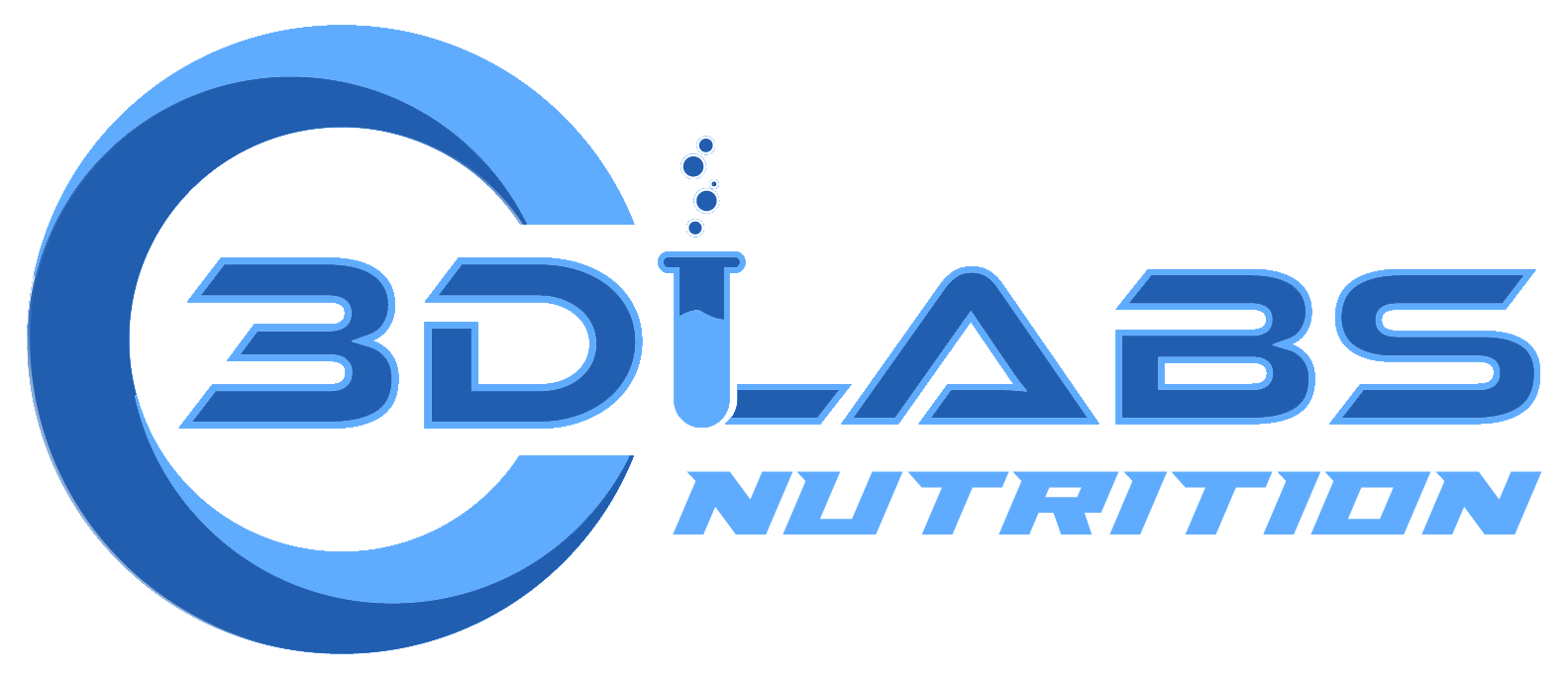
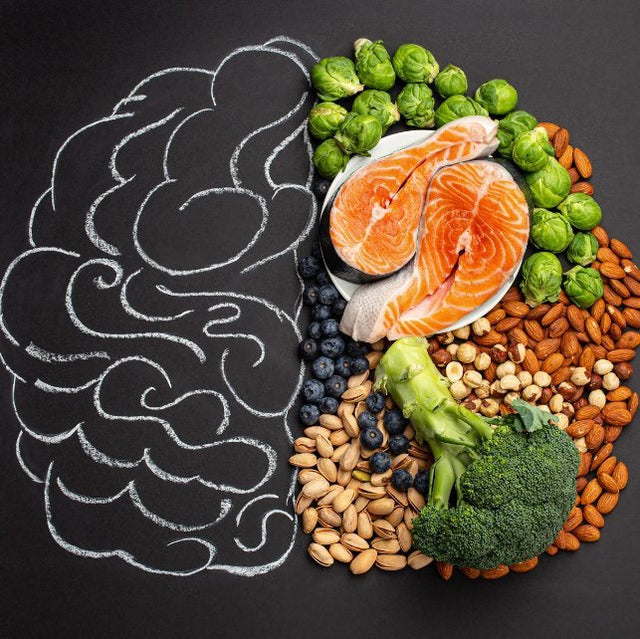
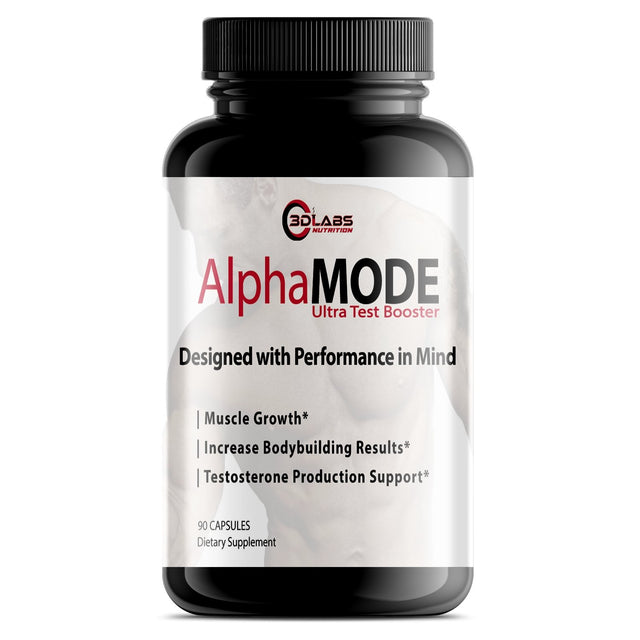

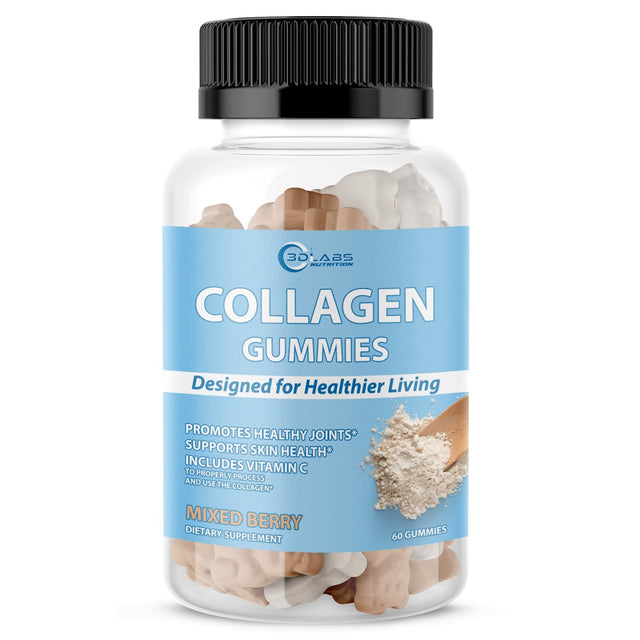
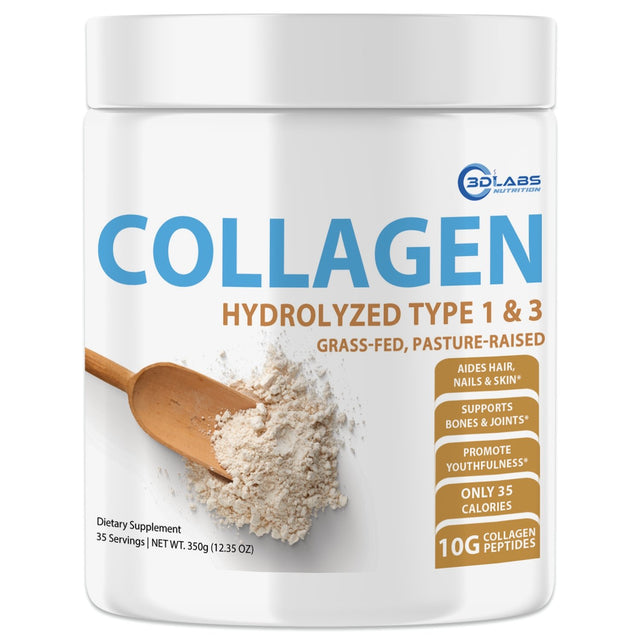
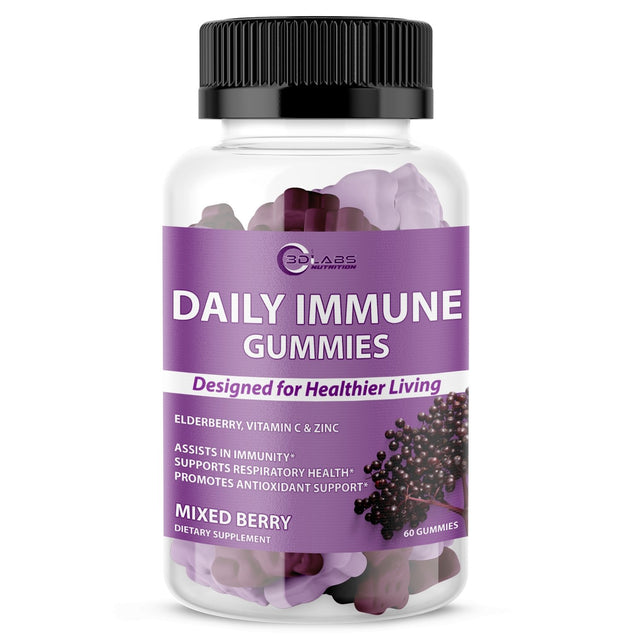
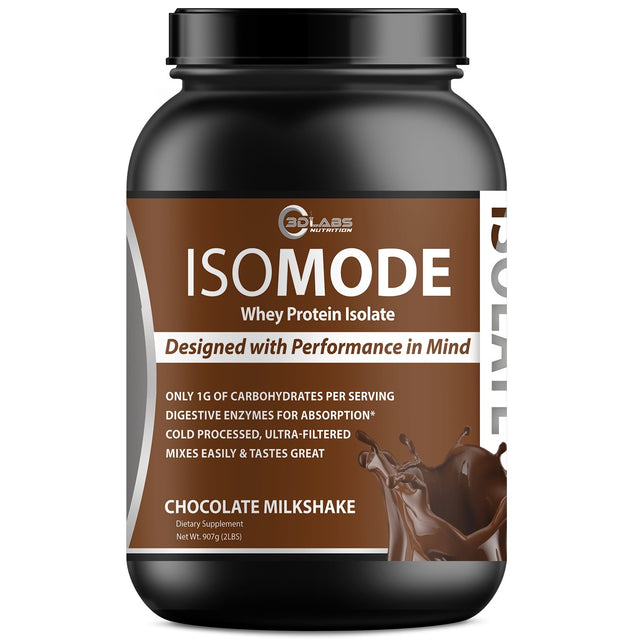
0 Comments
There are no comments for this article. Be the first one to leave a message!